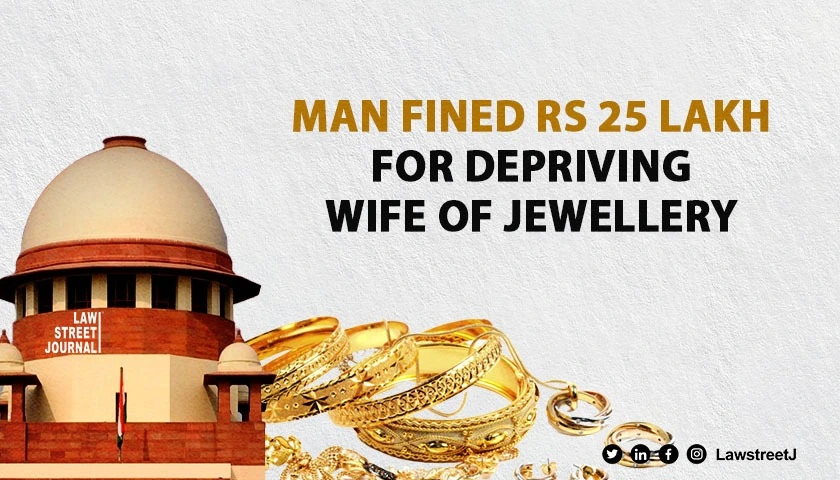NEW DELHI: The Supreme Court has said greed is a powerful motivator to commit dastardlier acts, as it ordered a man to pay his wife Rs 25 lakh to a woman for misappropriation of her 'stridhan' jewellery on the first night of marriage in 2003.
The apex court explained that woman's stridhan is her absolute property with all rights to dispose at her own pleasure and it can never become a joint property with her husband who may use it during the time of distress but nonetheless he has a moral obligation to restore it or its value to his wife.
A bench of Justices Sanjiv Khanna and Dipankar Datta exercised its extraordinary power under Article 142 of the Constitution to do complete justice to award Rs 25 lakh as financial recompense to be paid by the husband for his rapacious conduct for taking away all his wife's jewellery, to the now 50-year-old woman for future life.
The court said the order was passed bearing in mind the passage of time, the escalation in cost of living, and in the interest of equity and justice.
The apex court set aside the Kerala High Court's April 5, 2022 judgment which quashed a family court's 2011 order to recover Rs 8,90,000 as the value of 89 sovereigns of gold from the husband and mother-in-law, recompense to the appellant Rs two lakh while granting divorce in the matter.
"We noted with some degree of distress that the HC set aside the well reasoned judgment of the family court," the bench said.
The court said the High Court assumed that it was not believable for a newly married woman to be deprived of all gold jewellery on the first night itself.
"Greed is a powerful motivator and has spurred humans to commit crimes far dastardlier. We, thus, do not find it outside the realm of human possibility for a husband to commit against his wife such unacceptable and undesirable acts, which were alleged," the bench said.
The wife alleged her husband on the first night of marriage in 2003 took away all her jewellery for safekeeping by the mother-in-law.
The High Court, however, attributed lack of bona fide on the part of the appellant solely on account of the petition being filed in 2009 although cohabitation of the spouses had ended in 2006 itself.
"Matters of matrimony can rarely be said to be simple or straightforward; hence, human reaction as per a mechanical timeline before the sacred bond of marriage is severed is not what one would expect," the bench said.
The court also said divorce, majorly, in Indian society is still considered a stigma, and any delay in commencement of legal proceedings is quite understandable because of the attempts made to have the disputes and differences resolved; more so, in a case of the present nature, when the appellant was faced with the imminent prospect of termination of her second marriage.
The court also said the very concept of marriage rests on the inevitable mutual trust of the spouses, which conjugality necessarily involves.
"To assume that the appellant from day one did not trust the first respondent is rather improbable. The High Court, thus, failed to draw the right inference from facts which appear to have been fairly established," the court said.
The bench concluded the High Court patently fell in error in interfering with a well-written reasoned decision of the family court.
The High Court imposed a greater burden on the appellant than was warranted and failed to draw right inference, it noted.
"It was not a criminal trial where the chain of circumstances had to be complete and conclusively proved, without any missing link. Undisputedly, the appellant had brought to the matrimonial home sufficient quantum of jewellery, which she wore during the marriage and as is evidenced from photographs and, having regard thereto, the High Court committed serious error in first doubting and then disbelieving the appellants version on the specious ground that documents proving acquisition thereof by had not been produced," the bench said.
The court said in civil cases including matrimonial disputes of a civil nature, the standard of proof is not proof beyond reasonable doubt but the preponderance of probabilities tending to draw an inference that the fact must be more probable.

















